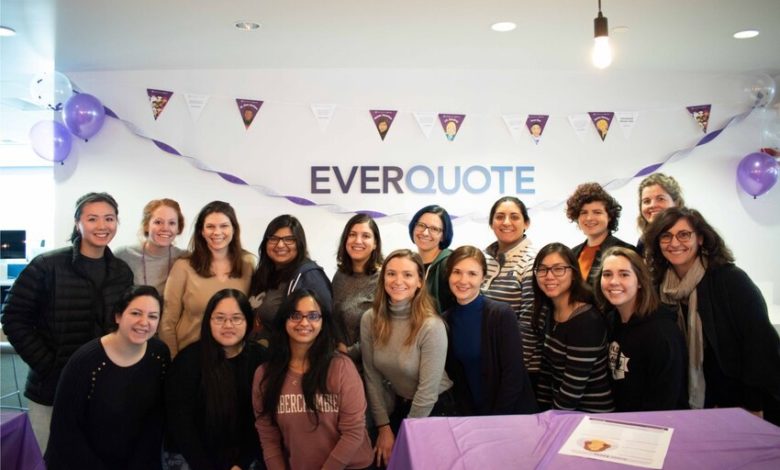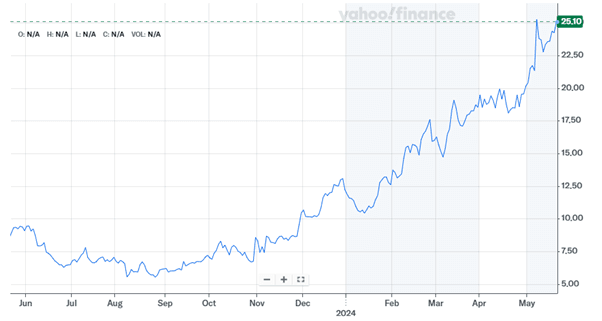Is EverQuote’s Stalled Takeover a Signal to Buy? Investors, Take Note!

EverQuote (NASDAQ:EVER), the thriving online insurance marketplace known for connecting consumers with insurance providers, recently hit a snag that has caught the attention of investors and market analysts alike. The buzz around EverQuote intensified following an "uncooked" alert from Betaville, suggesting that earlier discussions about a potential takeover have unexpectedly stalled. This news has led to a slight retreat in EverQuote’s stock, which had been experiencing gains amid speculation of acquisition interest from a notable private equity firm. Investors now find themselves at a crossroads: Is this hiccup a red flag signalling deeper issues, or could it be a temporary setback that presents a unique buying opportunity? Let us find out.
What Does EverQuote Do?
EverQuote, Inc., initially established as AdHarmonics, Inc. in 2008, is a leading online marketplace for insurance shopping headquartered in Cambridge, Massachusetts. The company underwent a rebranding to its current name in November 2014, reflecting its expanded offerings and growth. EverQuote facilitates a comprehensive range of insurance products, including auto, home and renters, life, and health insurance. Its platform serves a diverse clientele, encompassing insurance carriers, agents, and indirect distributors, and engages in various online business activities to enhance its service delivery and market reach.
Strategic Business Realignment and Market Positioning
In 2023, EverQuote undertook significant strategic realignments to hone its core competencies as a capital-efficient digital insurance marketplace, focusing primarily on enhancing its service offerings and operational efficiency. These adjustments are particularly crucial as they have helped the company stabilize and subsequently excel, even amidst fluctuating market conditions. By returning to its roots and reinforcing its foundation, EverQuote has set a robust platform for sustainable growth. The company’s deliberate shift to streamline operations and focus intensely on the auto insurance vertical—a sector showing signs of recovery with improved carrier underwriting profitability—positions it advantageously within the marketplace. This strategy is underscored by an increase in carrier and agent engagements and an expanded state footprint, indicating a reinvigorated interest from insurance providers in leveraging EverQuote’s marketplace for customer acquisition. The company's strategic realignment not only improved operational efficiencies but also enhanced its ability to quickly adapt to changing market dynamics, thus providing a stable groundwork for growth and profitability. This realignment is expected to drive EverQuote's performance in the coming years as it continues to leverage its strengthened position to capitalize on industry recoveries and expansions.
Advancements in Technology and Infrastructure
Recently, EverQuote has demonstrated a commitment to technological advancement and infrastructure enhancement, which are pivotal to its long-term success. The company successfully migrated most of its traffic to a new site infrastructure and began transitioning customers to an upgraded agent platform. Perhaps most notably, it has largely integrated its traffic bidding processes into a new machine learning-powered platform. These technological enhancements are critical as they enable EverQuote to optimize its service delivery, improve the user experience on its platforms, and increase the efficiency and effectiveness of its marketing and customer acquisition strategies. By investing in technology, EverQuote is better equipped to handle increased traffic, manage more significant data volumes, and deploy advanced analytical tools to refine its service offerings. These improvements are not just about handling current capacities but are aimed at scaling operations to meet future demands. As the insurance marketplace grows increasingly competitive and digitized, EverQuote's proactive strides in technological advancement set it apart, enabling it to maintain a competitive edge and attract both new customers and partners.
Recovery and Growth in the Auto Insurance Sector
The auto insurance sector, which constitutes a significant portion of EverQuote's revenue, has shown signs of recovery and growth, which is a promising indicator of the company's future performance. After a period of market volatility, auto insurance carriers are exhibiting a renewed focus on growth, reactivating campaigns, and expanding budget allocations within EverQuote's marketplace. This resurgence is critical as it directly impacts EverQuote's revenue streams from the auto insurance vertical, which remains its largest. The company's readiness to capitalize on this recovery is evidenced by its record revenue figures in recent quarters, driven by substantial increases in carrier spend. The sustained recovery and growth in the auto insurance sector not only boost EverQuote's current financial health but also reinforce long-term stability and growth prospects. With carriers increasingly returning to growth-oriented strategies, EverQuote stands to benefit from heightened engagement and expanded opportunities within its platform, thus making this sectoral recovery a significant growth driver for the company.
Final Thoughts

Source: Yahoo Finance
We can see that EverQuote has been on a phenomenal bull run over the past year given its consistently good results. Just last month, whispers of a takeover had propelled the company into the spotlight, suggesting that a major deal could be on the horizon. The reasons behind the stalled acquisition discussions remain shrouded in mystery and questions arise about EverQuote's valuation, the interests of potential buyers, and the strategic directions the company might explore moving forward. EverQuote’s EV/ Revenue multiple of 3.02x is considered on the higher side especially for a company with a negative EBITDA. Despite the fact that its loss-margin is contracting, it is understandable why acquirers do not wish to pay a premium over a revenue multiple as high as 3.02x which explains why the deal didn’t go through.




